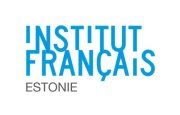Modelling workflow systems with active folders:
a decentralized and declarative approach to collaborative systems
with an emphasis on the artifacts and the stakeholders
Éric Badouel
Équipe S4
Institut de Recherche en Informatique et Systèmes Aléatoires (IRISA)
INRIA Rennes - Bretagne Altantique
Monday, 4 June 2012, 14:00 (note the unusual weekday)
Cybernetica Bldg (Akadeemia tee 21), room B101
Slides from the talk [pdf]
Abstract: Workflow systems are traditionally organized as a set of coordinated activities between the various stakeholders of the system. In this context the emphasis is on the flow of tasks, which is usually modeled using centralized and state-based formalisms like automata, or Petri nets. Data that are exchanged during the processing of a task play a secondary role when they are not simply ignored. Similarly, stakeholders are used as plain resources of these systems like a machine or a robot in a production line.
By contrast, the more recent model of Data-centric Workflow Systems, introduced by IBM, puts stress on the exchanged documents, the so-called Business Artifacts. An artifact is a document that conveys all the informations related to a given task from its inception in the workflow till its completion. However this model is again state-based (the life cycle of an artifact is given by an automaton) and centralized, and stakeholders are still not first class citizens.
We would like to develop a decentralized and purely declarative approach to collaborative systems which should at the same time be user-centric and data sensitive.
The starting point is a modular language-based approach for the design of the end-user workspace. This workspace is modeled by a so-called Active Folder (AF) which combines structure, data, and computations. The latter are given by semantic rules used to derive data values from contextual information in the structure --as in a spreadsheet system-- or to restrict user interactions to guide him in the completion of some required data fields. This model use a variant of attribute grammars and we rest on classical techniques (Swierstra and al, UUAG system) to adapt or configure the workspace of a particular stakeholder by deriving a combinator-based domain specific language from the semantic rules.
We then introduce a model of Data-centric Workflow Systems based on Active Folders. Communication between stakeholders is purely asynchronous: Using message passing without fifo assumption, and no shared memory. A message enacts the creation of an artifact at the corresponding node of the receiving active folder and it subscribes a (or several) particular view(s) of this artifact which will be forwarded (when an associated guard holds) to the recipient nodes (for this particular subscription).
We first motivate the model of Active Folders using some representative case studies, then we give a precise description of the model. Finally, we mention some directions for further research: verification or enforcement of some properties of these systems such that the soundness of a workflow (it is always possible to bring an artifact to completion) and the opacity of artifacts (confidential data should be kept secret from some stakeholder).
This talk is given in the frame of the 4th French month of science in Estonia.

Tarmo Uustalu
Last update 4.6.2012